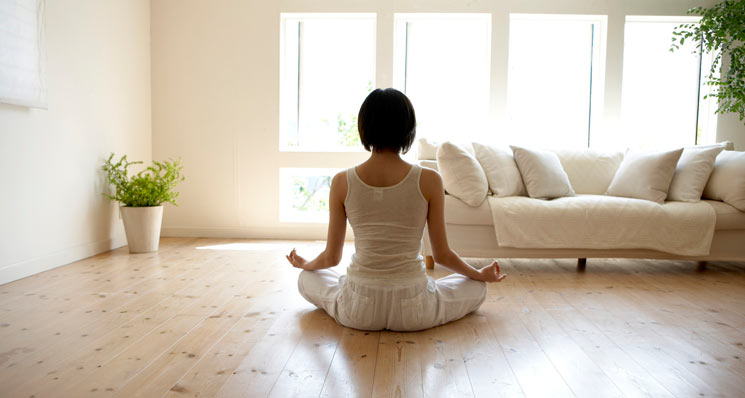Many people spend what seems to be the length of a lifetime fantasizing about the perfect relationship. And while some are struggling their way through, and are still to settle in the relationship of their lives, others are lucky enough to have already done that. The thing is, though, that preparing ourselves for a relationship while being all by ourselves is indeed a practicing field with lots of flaws. The personal dynamic while being single is completely different from that of a person who is having a partner.

Being all by ourselves, we become adept at self-validation, self-management, and facing the chores of everyday life. After all, we had a lifetime of practice, and we enjoy things the way they are.
What happens when a partner enters into our life- as I’m sure many have felt this- is that we somehow become partially dependent; dependent on this person for validation, attention, even maintaining the image of ourselves to some degree.
Habits form themselves out of this dynamic- and you have a person who is slowly becoming needy, dependent on his partner for his happiness, insecure, even jealous. Repeated just enough, these habits transform an individual, and what was earlier a whole person is now something else entirely.
Becoming insecure, dependent, needy…
Let us imagine an example of a woman who is constantly checking in with her boyfriend, seeking clues that he does indeed love her, constantly interpreting “signs” within his behavior, wondering why he is not giving her enough attention, worrying that he might flirt with other women…
She is obviously not happy into this relationship, and is dependent on him for her happiness. This doesn’t make for a good relationship, or a happy person.
What happens when you have some degree of this in your relationship? You’re probably not a good boyfriend, girlfriend, spouse. The other person feels like he has to keep making you happy, always be “on” so that you won’t wonder what’s wrong with your relationship, always supply your needs, and never have the freedom to do his own thing while you do yours. This makes for a tough relationship, and if it lasts more than a few years, long-term problems usually develop.
Now what if I tell you that this applies to men and women both, and that we can all become the woman from the example above even though our partner is giving us all of his love and attention?
Before we continue with this article let me tell you that I’m familiar with this position, because I’ve been there myself long enough, and had to learn things the hard way. Making friends with a lot of couples, my girlfriend and I can now easily recognize the same things that were once giving our relationship a hard time. Believe it or not, most people had some of these same issues within their relationships as well.
Those that have happy, long lasting relationships-turned-marriages… well, they’ve found a way to overcome these issues and be whole. The things is- just the same way as these insecurities and issues arise out of habits, they can be reversed and abandoned. This article is here to offer you a hand.
Becoming a whole person again

Try to neglect my inability to craft thoroughly captivating sub-headlines, and give this chapter your extended attention.
Not being whole will force you to depend more and more on your partner, thus making things harder on his side. It will interrupt the flow of your life as well. Becoming whole means being happy, whether this is through enjoying what you love to do, constantly trying to have a balanced and fulfilled day, and certainly not obsessing over your significant other.
Before we focus on the relationship, we have to focus on one person since putting the two of you together into the equation makes things rather complicated. Thus we focus on the simple part of the equation- you.
When you are a whole person you don’t need someone else’s validation, or attention, or anything else in order to be happy. Just as we once functioned on our own, remember? That’s not to say that you don’t want to be loved, or want the attention of others in your life, but you already provide what you need, all by yourself. In such case, being enough all by yourself, you can be happier and even love more and allow others to love you back as well.
When you’re whole, you don’t need the other person to check in with you all the time, because you’re happy on your own. You’re OK if they go do their own thing, because you’re secure in your relationship and you’re perfectly fine doing your own thing too. You don’t need reassurance of that person’s love, because you’re secure.
Two whole people coming together
A solid relationship means two whole, or fairly whole, people coming together because they enjoy being with each other. They enjoy each other’s company, want to spend time together, and enjoy many aspects of life along one another.
If we combine a whole person with one who is not so much, then the whole person will try his best to help the other, but over the long haul weariness kicks in and they start to feel resentment. If both are needy and insecure though, constant fights become a rather usual everyday occurrence- why didn’t you check in with me, why are you so distant today, what are you doing talking to that guy?…
When two people in a relationship become whole, everything becomes better.
They can be apart and still secure enough not to worry about the other person, even happy being alone. They can come together and be happy, enjoying each other’s company. They don’t need each other all the time, but love each other and care for one another’s happiness — not worrying so much about their own happiness, because they are already happy and secure.
How to become whole in a relationship?
Like any other emotional and psychological condition caused by a habit, doing the exact opposite can reverse the process. Pinpoint the exact habits that took you there- to insecurity, to neediness- and figure out the exact opposite approach, thus turning everything around and becoming whole again. -Too much of a work? Don’t worry; I’ll do this for you…
Understand that this is a process
First thing you have to realize, and realize at the very beginning, is that this is a slow but very effective process. Depending on how long your emotional and psychological state of insecurity and neediness stretched, smaller or more complex habits need to be developed in order to reverse it. In fact, the habits are the same whichever way you try to look at them, but only different in how hard they are for you to adopt.
Habits, your medication of prescription

Another thing you might be wondering about in this instance is the necessity of habits; or their effectiveness altogether when it comes to a question such as this. Don’t worry though, for this process is going to deliver results and change your behavior and thus the way you look and feel about things.
Several ancient cultures and religions taught the way to belief and personal identity was not through contemplation, but rather though action. They understood the power that our outward actions have on our inner psyche. By living the outward ordinances, a change happens within. By avoiding acts of insecurity and neediness, you become less so. The more you exercise habits that are normally associated with secure, self-dependent and content individuals, the more you look the part.
The goal here is to abide few of the habits I’m about to list, and never break the chain.
Becoming aware is a huge milestone
The more conscious we are, the less we act out of impulse i.e. the less we screw up and bind to our insecurities. But how does one develop awareness and hence exercise mindfulness while confronted with emotional issues of such caliber? Allow me…
These two habits alone have the power to transform the way you look at things, and help you understand the usefulness of your insecurities.
Exercise Number 1
For the first one, take a pen and paper and write down all your insecurities as you scrap both mind and feelings in order to find them. Fold the paper, write the day of the week on the back side, and put it away. Repeat this exercise each day and you will see how silly your insecurities start to look all of the sudden. In addition, from time to time do a general check-up as well, where you sit down and open couple of days’ worth of notes. This will reduce your worries and insecurities and dwarf them into insignificance. Remember, keep doing this even as long as a month; even if you sometimes don’t have anything to write down, even if it starts to look silly doing it.
Exercise Number 2
Meditation. Plain and simple.

There is nothing in this world I’ve found to be more awareness inducing than the act of meditating. And I know this practice sounds borderline impossible for some to imagine, but I’ve been there too- a total layman, which I still am despite having some great results with it.
The act of meditating will help you access your feelings and understand them whenever they emerge to the surface. Being aware about them, it gets harder to become overwhelmed by them. Makes sense, right?
Understanding how to recognize these feelings of neediness or insecurity and then letting go, you will start to make some real progress in your transformation and journey to become a whole person.
And while nine out of ten think that meditation is hard to grasp (I thought the same too), there are now easy ways to tap into the endless benefits that meditation can offer. One such example is Headspace, perhaps the most thorough guide on meditation available. They have a free trial with ten days of guided meditation that you can do anywhere and at any time from either your laptop, smartphone or any other mobile device. This, aside from helping you with your relationship and awareness regarding your relationship, will do wonders in many other verticals of your life as well. And how much of a chore can 10 minutes be, right? Don’t worry, you will love your session and can’t wait to start again the next day.
Now about those other habits…
Number 1 - Stop checking in all of the time
As with anything else in life, the habit of continuous checking in creates a sense of restlessness, and somewhat of an anxiety. Stop doing it immediately. It is making you more insecure, more dependent on the act of constantly being reassured, and more restless.
This however, is easier said than done, so let me offer some help here.
Whenever the urge to check in with your significant other arrives, not from love or actual necessity but out of insecurity, recognize it (as you will easily do, thanks to the exercises for awareness listed above) and stop yourself from acting upon it.
In order to help yourself (for habit triggers are usually hard to ignore) switch the act of checking in with your partner with something else. Go for a walk, read something, engage in a conversation, immerse yourself in some type of activity and do your own thing… The urge will still be there, unsatisfied, waiting for you to respond with some act of insecurity, but over time its intensity will dissolve into oblivion.
Repeating this exercise long enough, you will see the urge gone.
Number 2- Stop looking for “signs” and stop measuring things on a scale
If you want to find signs that your significant other is distant, not interested, is not giving you the attention, does not love you equally much… well, guess what- you will find plenty. The thing is, observing the world through the prism of doubt and insecurity, the reality might look disturbingly misleading.
Just as an overweight person entering the room thinks everybody is looking at him because of his weight, so will you start to misinterpret every little thing your partner does. Catch yourself doing this, and let go. You might find an initial discomfort for a while, but it will pass, I assure you.
In order to build habits that will help you with this process consider these:
- Don’t check the clock in order to count the hours or minutes that your significant other has spent not calling you back. Once again, immerse yourself into something else once this impulse arrives.
- Don’t measure the length of a conversation, ever. (it doesn’t mean anything)
- Don’t count the number of times you’ve said or done something nice, and then compare that number with that of your partner. It puts pressure on the relationship thus resulting with the exact thing you are trying to convince yourself otherwise.
- Don’t try to discuss every little detail your partner does. This is caused by your own insecurity, and you will be smart to avoid it. Sure, there are times when you will want to dig deep into an issue when you feel there is something brewing, but often times people feel distant, or appear strange without any actual reason at all… Don’t try to dig to the bottom of it every time, and don’t pull conclusions out of a hat. Stop analyzing each move that your partner does and you will find yourself having an improved judgment.
Number 3 - Forget verbal reassurance
Some people are more vocal than others, so what? If you tell your partner how much you love him, don’t expect to find a perfect symmetry in words. Once again, stop to measure things and remember that you are enjoying your relationship just as much as your partner does. Otherwise you won’t be together.
Sure, there are times when your partner might feel blue, but that is a perfectly normal human emotion, and often times it doesn’t have anything to do with you.
Say nice words only when you feel them, and allow your partner to do the same in his own way and time.
Supplementing this habit, you might stop asking for validation- For good. It might seem impossible at the beginning, but remember- this is a process, so things will eventually get there, or at least balance themselves out.
Number 4 - Stop asking about every little detail
If there is something your significant other needs to tell you, he will. If he sat next to a woman during a seminar, and didn’t find that important enough to tell you, ask yourself this - might’ve it been because he didn’t even noticed or looked the woman in the same way you did thanks to your insecurity?
Your partner loves YOU, and he is in a relationship with YOU.
Self-destructive thoughts have a way on their own to creep deep into your mind and mess up your perception. Recognizing them for what they are, you will resist the impulse to ask stupid questions like: What did you two talk about, or what does she think talking to you…
We are not entirely immune to such thoughts, and spending time with a lot of couples has taught me that all of us can act impulsively every once in a while. But the more aware you become of your own thoughts, and the more you recognize them for what they are, the less you will feel the need to ask questions. Repeated just enough, this process makes you far more secure and content.
During this period where you are fighting urges by exercising the creation of new habits, remember to stay aware of your emotions and feelings of insecurity, neediness and dependency. Write them down as we discussed above, meditate each day by using Headspace or some other app, and you will notice huge progress in the way you see things and thus feel about them.
If you are not a “whole” person and want to become one for the sake of your relationship and yourself as well, remember this- everything you need is already there. You already have everything in order to be whole, secure, content, happy - just let go of all the insecurities by realizing how awesome you already are.
Keeping up with the set of habits I listed above will help a great deal in this process. As you improve, your relationship will follow as well, and that is true happiness right there.
Here is to a more secure and happier you, and to a rock-solid and long-lasting relationship!